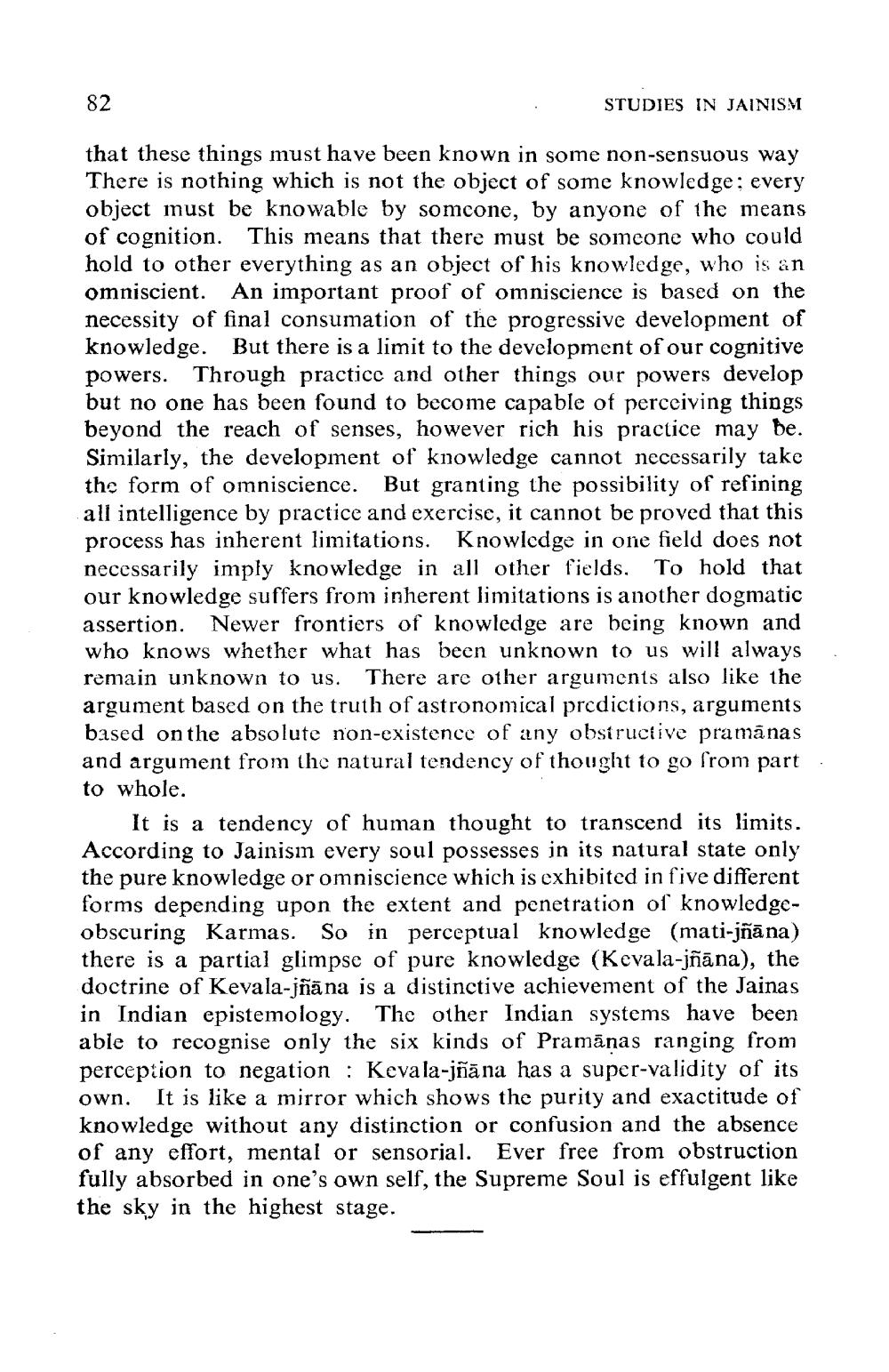________________
82
STUDIES IN JAINISM
that these things must have been known in some non-sensuous way There is nothing which is not the object of some knowledge: every object must be knowable by somcone, by anyone of the means of cognition. This means that there must be someone who could hold to other everything as an object of his knowledge, who is an omniscient. An important proof of omniscience is based on the necessity of final consumation of the progressive development of knowledge. But there is a limit to the development of our cognitive powers. Through practicc and other things our powers develop but no one has been found to become capable of perceiving things beyond the reach of senses, however rich his practice may be. Similarly, the development of knowledge cannot necessarily take the form of omniscience. But granting the possibility of refining all intelligence by practice and exercise, it cannot be proved that this process has inherent limitations. Knowledge in one field does not necessarily imply knowledge in all other fields. To hold that our knowledge suffers from inherent limitations is another dogmatic assertion. Newer frontiers of knowledge are being known and who knows whether what has been unknown to us will always remain unknown to us. There are other arguments also like the argument based on the truth of astronomical prcdictions, arguments based on the absolute non-existence of any obstructive pramānas and argument from the natural tendency of thought to go from part. to whole.
It is a tendency of human thought to transcend its limits. According to Jainisin every soul possesses in its natural state only the pure knowledge or omniscience which is exhibited in five different forms depending upon the extent and penetration of knowledgeobscuring Karmas. So in perceptual knowledge (mati-jñāna) there is a partial glimpse of pure knowledge (Kevala-jñāna), the doctrine of Kevala-jñāna is a distinctive achievement of the Jainas in Indian epistemology. The other Indian systems have been able to recognise only the six kinds of Pramānas ranging from perception to negation : Keva la-jñāna has a super-validity of its own. It is like a mirror which shows the purity and exactitude of knowledge without any distinction or confusion and the absence of any effort, mental or sensorial. Ever free from obstruction fully absorbed in one's own self, the Supreme Soul is effulgent like the sky in the highest stage.




